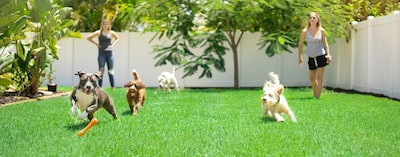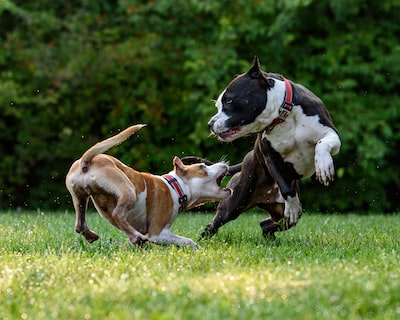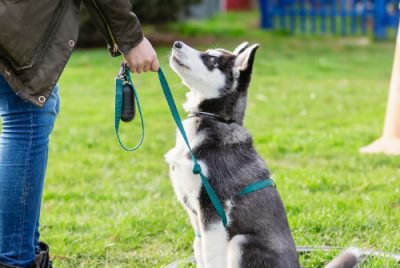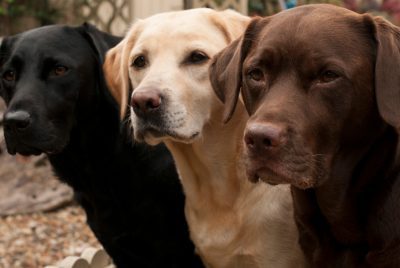Essential Tips for Successful Dog Socialization
Post Disclaimer
We may earn a commission for purchases made using our links. Please see our Disclaimer to learn more.
Master Dog Socialization: Essential Tips for Success
Dogs are naturally animals. It’s important to ensure they have proper socialization, for their development. Socializing your companion helps them build confidence learn how to interact with dogs and humans and prevents any unwanted behaviors. However, as a dog owner you may find socialization to be a bit challenging. In this article we will cover all the information about dog socialization. We’ll discuss why it’s important for your dog’s well-being, the factors that contribute to dog socialization, a step-by-step guide on how to socialize your dog effectively ways to overcome any challenges you may encounter during the process and methods to measure your success. Whether you have a puppy or an adult dog in need of some help with socialization this guide will provide tips, for achieving success.
The Importance of Dog Socialization

The early stages of a dogs life are crucial, for their development. It’s important to expose them to environments, people and other animals to help shape their personality and ensure they grow up to be confident and friendly. Socializing your dog also helps prevent any behavior issues that may arise later in life. When you socialize your friend they learn social skills that allow them to interact positively with others. This regular exposure has an impact on their well-being. The best time to start this process is, during the months of their life so make sure not to miss out on this valuable opportunity to set them up for success.
Key Factors in Successful Dog Socialization
Having interactions is really important when it comes to socializing your dog. It’s crucial to expose your friend to people and environments regularly. This way they can become familiar, with situations. Feel comfortable in them. When introducing your pup to pets make sure you do it in a controlled and safe way. Repetition plays a role in reinforcing experiences because it helps dogs learn new tricks and behaviors. If you’re not sure about the socialization process don’t hesitate to seek advice from a veterinarian or dog trainer who can provide guidance and ensure the outcomes for your adult dog. The great news is that, by following these factors you’ll be able to raise a well socialized dog.
Understanding Your Dog’s Unique Needs
Different dog breeds have requirements when it comes to socialization. It’s important to understand what your specific dog needs. Age also plays a role, in the socialization process. While its best to start socializing your dog between 3 -14 weeks of age older dogs can still benefit from socialization with patience and understanding. It’s crucial to respect your dogs comfort zone during this process. Take into consideration their background and experiences including their interactions, with people and other animals. By considering these factors you can customize their socialization experiences to make them feel safe and gradually increase their confidence. Remember that every dog is unique so adapt your approach accordingly.
Recognizing the Role of Breed and Age in Socialization
Understanding the importance of breed and age when it comes to dog socialization is crucial, for achieving outcomes. Puppies experience a period for socialization between the ages of 3 and 14 weeks making early socialization extremely important. However, it’s essential to acknowledge that different breeds may have tendencies that can influence how they respond to socialization efforts. Some breeds may require socialization than others in order to become well rounded and confident dogs. To ensure results it is advisable to seek advice from breeders or experts who can provide valuable insights and specific recommendations tailored to your dogs breed. Remember, starting the process of socialization at the time while considering your dogs specific breed can establish a foundation for a happy and well-adjusted furry friend, throughout its lifetime.
Step-by-Step Guide to Socialize Your Dog
Start by introducing your dog to experiences and environments. Use reinforcement methods to reward desired behaviors, which will help your furry friend learn tricks and build confidence. As time goes on increase the difficulty level of socialization situations by taking your adult dog to places. It’s important to expose them to a variety of people, including children and strangers so they can become comfortable, in settings. Consider enrolling your dog in training classes where they can interact with dogs and acquire valuable skills through structured socialization. Remember, the earlier you start socializing your dog, the. However older dogs can benefit from this process so don’t hesitate to get started!
Starting Slow: The Power of Small Steps
Beginning the socialization process in a calm and controlled environment is key. It allows your dog to feel safe and secure as they start their journey. Give them the freedom to explore at their own pace, without rushing or forcing them into overwhelming situations. Using treats and rewards can create positive associations with new experiences, motivating your pooch to engage and learn. As your dog grows more comfortable, gradually increase the duration and intensity of socialization outings, exposing them to different environments, people, and dogs. Remember to be patient and understanding with their progress, celebrating even the smallest victories. Taking small steps can lead to big rewards in building a confident and well-socialized dog.
Introducing Your Dog to Other Dogs and People
When introducing your dog to other dogs and people, it’s important to start with well-behaved and friendly dogs. This sets a positive tone for the interaction and increases the chances of a successful introduction. Using a leash during initial interactions ensures safety and control, allowing you to intervene if necessary.
Allowing dogs to greet each other calmly and sniff helps them establish familiarity and build a rapport. It’s vital to monitor their body language for signs of discomfort or aggression. If any negative signals are observed, it’s best to separate the dogs and try again later.
Encouraging positive interactions and rewarding good behavior reinforces the idea that meeting new dogs and people is a pleasant experience. By incorporating these tips into your dog’s socialization routine, you can ensure that they become a confident and well-adjusted pooch. Remember, the early months of life are the best time to expose them to new experiences and individuals. Good news is that regular dog training and socialization on a regular basis, along with completing the vaccination series, contribute to a happy and balanced adult dog.
Utilizing Public Spaces for Socialization: Dog Parks & Beyond
Taking advantage of areas, for socializing, such as dog parks and more can be a way to expose your furry companion to new surroundings and experiences. If your dog enjoys these parks they offer an opportunity for them to interact with dogs and learn from them. However, it is crucial to keep an eye on your dog in these spaces to ensure their safety and avoid any potential conflicts.
Besides dog parks gradually introducing your canine friend to environments like pet stores or outdoor events can further enhance their skills. Using reinforcement techniques during these outings. Such as treats or praise. Can help reinforce behavior and make the experience enjoyable for your four legged pal. It is also important to be mindful of health risks and ensure that your dogs vaccinations are up to date.
By making use of these areas and incorporating socialization outings into your routine you can assist in shaping your dog into a confident and well socialized adult. While it is ideal to start socializing at a stage, in their life it’s never too late to teach a dog some new tricks. The good news is that with patience, consistency and positive reinforcement you can help your furry friend become a well-adjusted member of society.
Overcoming Challenges in Dog Socialization
It’s important to seek assistance if your dog displays signs of fear or aggression, towards others. Remember, socializing your dog is a process that requires time and patience. It’s crucial to celebrate victories along the way and avoid forcing your dog into social situations. Instead create a comfortable environment for them using tools like crates. By understanding and addressing any challenges that may arise you can ensure a socialization experience for your friend. Keep in mind that every dog is unique. What works for one might not work for another. The good news is that with training and regular exposure, to experiences you can help your dog develop confidence and become well socialized.
How to Address Shyness and Fear in Your Dog?
Gradually exposing your dog to new people and situations can help reduce shyness and fear. Positive reinforcement training is also effective in addressing these issues. Seek guidance from a professional trainer or behaviorist for specific techniques. Patience and consistency are key when working with a shy or fearful dog.
Measuring Success in Dog Socialization
Measuring Success in Dog Socialization involves understanding the significance of socializing dogs and setting achievable goals and timelines. It is essential to keep track of progress and celebrate the successes along the way. If needed, seeking professional help can provide guidance and support. Remember that socialization is an ongoing process, so continue to expose your dog to different experiences throughout their lives to maintain positive behavior. By doing so, you can have a well-adjusted and confident dog. The good news is that with regular training and exposure to new tricks and situations, your pooch will become more adaptable and sociable. So, embrace the journey of socialization and watch your dog thrive.
What Signs Indicate That Your Dog Is Well-Socialized?
Signs of a well-socialized dog include being comfortable around strangers, showing confidence in new environments, engaging in playful interactions with other dogs, maintaining a calm demeanor in crowded places, and being responsive to training.
Conclusion
In summary the socialization of dogs plays a role, in ensuring the well-being of your furry companion. It assists in their confidence building reduces fear and aggression and improves their ability to navigate environments. By understanding your dogs needs and considering factors like breed and age you can customize your approach to socialization for the outcomes. Remember to take it gradually introducing your dog to experiences while using positive reinforcement. Patience and consistency are key when addressing challenges such as shyness or fear. Lastly keep a lookout for signs that indicate your dog is well socialized such as behavior around dogs and people. With these guidelines you can become adept at dog socialization. Ensure a contented and well adapted companion.




